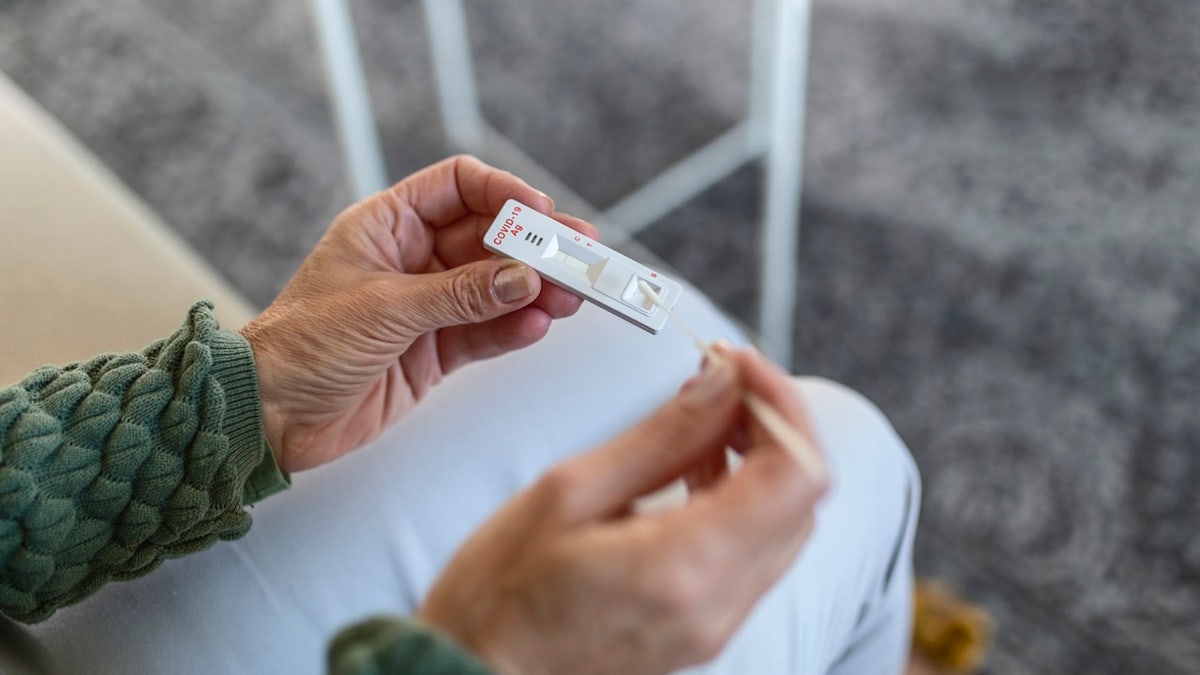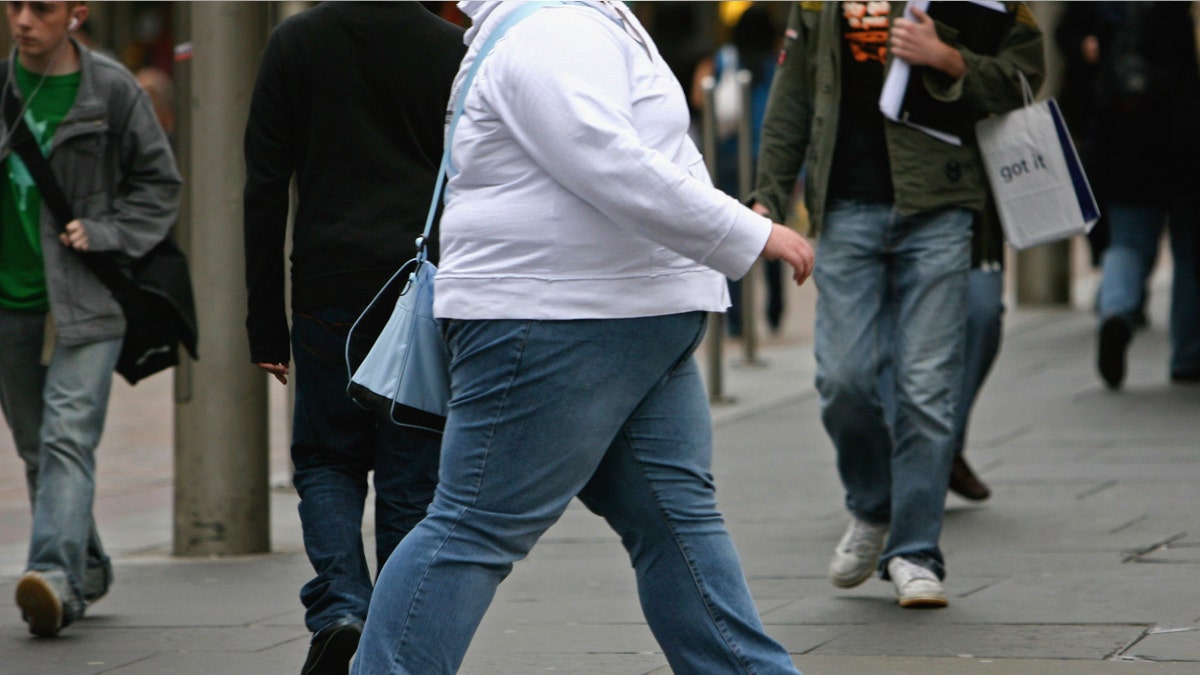Obesity has often been described as a "gateway disease" leading to other conditions — and one of those is COVID-19, according to a new study from Brigham and Women's Hospital and Harvard Medical School.
Patients with obesity were found to have a 34% higher risk of contracting SARS-CoV-2 compared to non-obese people, researchers found.
The study analyzed over 72,000 patients from Brigham and Women's Hospital in Boston, all of whom had either been exposed to COVID or tested positive for the virus between March 2020 and Jan. 2021, according to a press release.
IS MPOX THE NEXT COVID? INFECTIOUS DISEASE EXPERTS ADDRESS PANDEMIC POTENTIAL
The findings were published in PNAS Nexus on Tuesday.
For adults, obesity is defined as a body mass index (BMI) of 30 or greater, aligned with the World Health Organization (WHO)’s guidelines.

Obesity has often been described as a "gateway disease" leading to other conditions — and one of those is COVID-19, according to a new study. (iStock)
For children, the obesity guideline was a growth curve above the 95th percentile, per the criteria from the American Academy of Pediatrics (AAP).
Obesity rates among younger people are expected to approach 50% by 2030, according to the researchers.
"Obesity is not only a risk factor for worsened outcomes, but also increases the risk for infection upon exposure," the researchers wrote in the study findings.
NEW COVID VACCINES GET FDA APPROVAL FOR 2024-2025 SEASON
"Identifying such populations early will be crucial for curbing the spread of this infectious disease."
The results of the study were not surprising to medical experts, including Dr. Rekha Kumar, chief medical officer of Found, a telehealth weight care provider.

"Obesity is not only a risk factor for worsened outcomes, but also increases the risk for infection upon exposure," the researchers wrote. (iStock)
"We've known for some time that obesity is associated with increased severity of COVID-19, including higher risks of hospitalization, ICU admission and death," Kumar, who was not involved in the research, told Fox News Digital. She is also a practicing endocrinologist in New York City at NewYork-Presbyterian.
"This study extends our understanding by suggesting that obesity also increases the risk of initial infection."
"Whenever you have an increased inflammatory process in the body, it greatly affects the immune system."
Walter Gaman, M.D., of Executive Medicine of Texas, was not involved in the study, but also noted that the connection between obesity and COVID is "no surprise."
"We know that obesity is associated with inflammation and chronic diseases," he told Fox News Digital.
"Whenever you have an increased inflammatory process in the body, it greatly affects the immune system," he went on. "This is congruent with the findings of the study."

"There is an indisputable relationship between obesity and the immune system, chronic disease and early death," a doctor said. (iStock)
Underweight individuals were also at great risk at the height of the pandemic, Gaman pointed out.
"It would be interesting to see a study that addresses both overweight and underweight correlations to COVID," he added.
Why does obesity increase COVID risk?
There are several potential reasons for the link, according to Kumar, ranging from impaired immune function to coexisting conditions.

Obesity rates among younger people are expected to approach 50% by 2030, according to the researchers. (Getty Images)
"Obesity is associated with chronic low-grade inflammation and alterations in immune responses, which can compromise the body's ability to fight off infections effectively," she said.
"Additionally, obesity is often associated with other coexisting conditions, including diabetes and hypertension, which are themselves risk factors for COVID-19."
CLICK HERE TO GET THE FOX NEWS APP
Based on the findings, Gaman recommended that people obtain and maintain a healthy weight — not just for cosmetic reasons, but to improve their health.
"There is an indisputable relationship between obesity and the immune system, chronic disease and early death," he confirmed.

A doctor recommends that people with obesity continue to take extra precautions to avoid COVID-19 exposure — and that they speak with a medical provider if they need more specific guidance. (iStock)
"Regular exercise and a healthy diet are the first lines of defense when it comes to strengthening the immune system."
Kumar recommends that people with obesity continue to take extra precautions to avoid COVID-19 exposure — and that they speak with a medical provider if they need more specific guidance.
Potential limitations
The researchers acknowledged several limitations of the study, primarily that it relied on people self-reporting their exposure to the virus.
Also, all patients are from the Mass General Brigham health care network, which means they may not be representative of a wider population.
CLICK HERE TO SIGN UP FOR OUR HEALTH NEWSLETTER
The researchers also used data from patients’ electronic health records, which are subject to errors.
"It's a case-control study, which can show associations but not prove causation," Kumar added.

Obesity is often associated with other coexisting conditions, including diabetes and hypertension. (iStock)
Another potential limitation is that the study relied on BMI as the sole measure of obesity, she noted, which doesn't account for body composition or fat distribution.
"BMI can be a helpful measure for some things, but it’s not comprehensive," she said.
For more Health articles, visitwww.foxnews.com/health
There may also be underlying factors impacting COVID risk that were not considered, such as socioeconomic status or health care access, according to Kumar.
"I’d like to see this (and any) research replicated to include a broader audience to ensure that it’s as accurate and inclusive as possible," she said.
Melissa Rudy is senior health editor and a member of the lifestyle team at Fox News Digital. Story tips can be sent to melissa.rudy@fox.com.